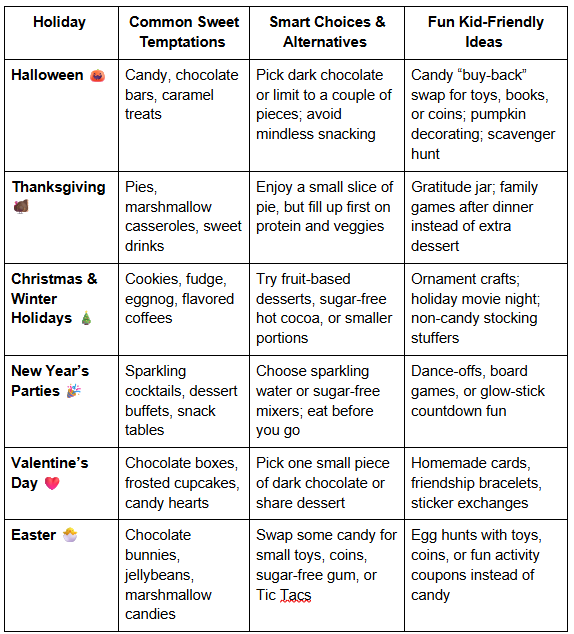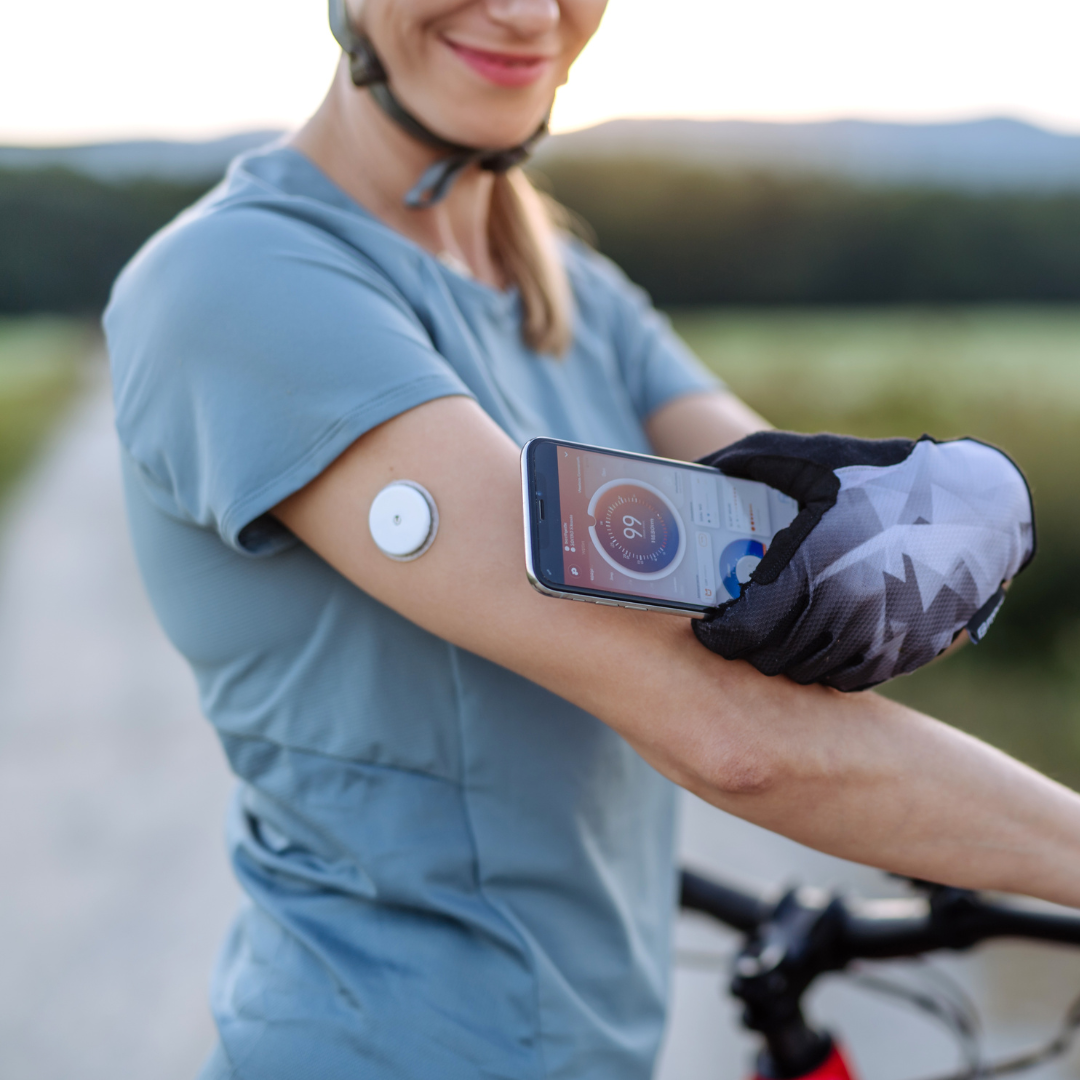Managing “Sweets Season”: Tips for Adults and Kids Living with Diabetes

From October through April, it feels like every month brings another sugar-filled holiday. Halloween, Thanksgiving, Christmas, New Year’s, Valentine’s Day, Easter…the list seems never-ending! For people living with diabetes, this “Sweets Season” can be tricky to navigate. Temptations are everywhere, and the pressure to join in on the fun can make it harder to manage blood sugar. But with a little planning and creativity, you can enjoy the season without overloading on sugar.
Smart Strategies for the Season
1. Plan Ahead for Parties
Holiday parties are full of candy, cookies, and sweet drinks. Before you go, eat a balanced snack with protein and fiber (like nuts, cheese, or veggies with hummus). This helps steady your blood sugar and makes it easier to resist overeating sweets.
2. Choose Smarter Treats
Not all sweets are created equal. Dark chocolate has less sugar than milk chocolate and also contains antioxidants which can be a smarter choice. Fruit-based desserts or small, single-serving treats are often better options than frosted cupcakes or sugar-heavy candy. You can also lighten up many traditional dessert recipes by swapping sugar for alternatives like applesauce, monk fruit, or other sugar substitutes.
3. Watch Hidden Sugar
Festive drinks like eggnog, holiday punch, or specialty coffee beverages can actually contain more sugar than a piece of candy. Whenever possible, choose lower-sugar options such as water, sparkling water, unsweetened tea, or beverages made with sugar-free mixers. Also, keep an eye on labels—terms like “sugar-free” or “no sugar added” don’t always mean they won’t affect your blood glucose levels.
4. Practice Portion Control
If you want dessert, take a small serving and really savor it. A couple of bites may be enough to satisfy the craving without sending blood sugar soaring.
5. Keep Moving
Incorporating physical activity into holiday routines can make a meaningful difference. Simple actions such as taking a walk after dinner, playing with children at family gatherings, or dancing at a party all contribute to increased activity levels. Regular activity not only supports overall health but can also help lower blood glucose. However, it’s important to monitor your blood glucose levels more frequently during periods of increased activity and to keep a fast-acting carbohydrate on hand in case of low blood sugar.
Holiday-by-Holiday Quick Tips
Each holiday has its own challenges. Here’s a simple guide to help you (and your kids) enjoy the season without sugar overload:

Making Celebrations Fun for Children Living with Diabetes
Holidays can be especially tough for kids. Candy is often the focus, and children don’t want to feel left out. That’s why it helps to shift the spotlight from sugar to fun. Here are a few fun ideas!
- Create a candy swap system where kids can trade in candy for toys, books, or experiences.
- Plan activities like crafts, games, and scavenger hunts make holidays exciting without sugar.
- Allow a small amount of candy but spread it out over time.
- For parties, work with schools and friends to encourage the use of non-food rewards like stickers, pencils, or small prizes.
Extra Tips and Tricks
- Use sugar alternatives wisely. Some sugar-free candies still affect blood sugar and
orcause stomach upset.
- Stay hydrated. Water helps manage cravings and supports healthy blood sugar.
- Don’t skip meals. Skipping to “save room” often backfires and can lead to bigger spikes later.
- Keep perspective. One small treat won’t ruin your progress! Balance is key.
Finding the Sweet Spot in Every Season
Sweets Season can still be a special occasion without the blood glucose rollercoaster. With smart choices, planning ahead, fun traditions, and a focus on balance, both adults and kids with diabetes can enjoy the holidays without feeling left out. The goal is to find healthier ways to celebrate, not skip out of the joy! It’s about choosing better options, not cutting out the fun!
Author: Rebecca Day RN, CDCES | CCS Health
This site is for educational purposes only. Talk to your doctor or healthcare provider before making any decisions about your health.



